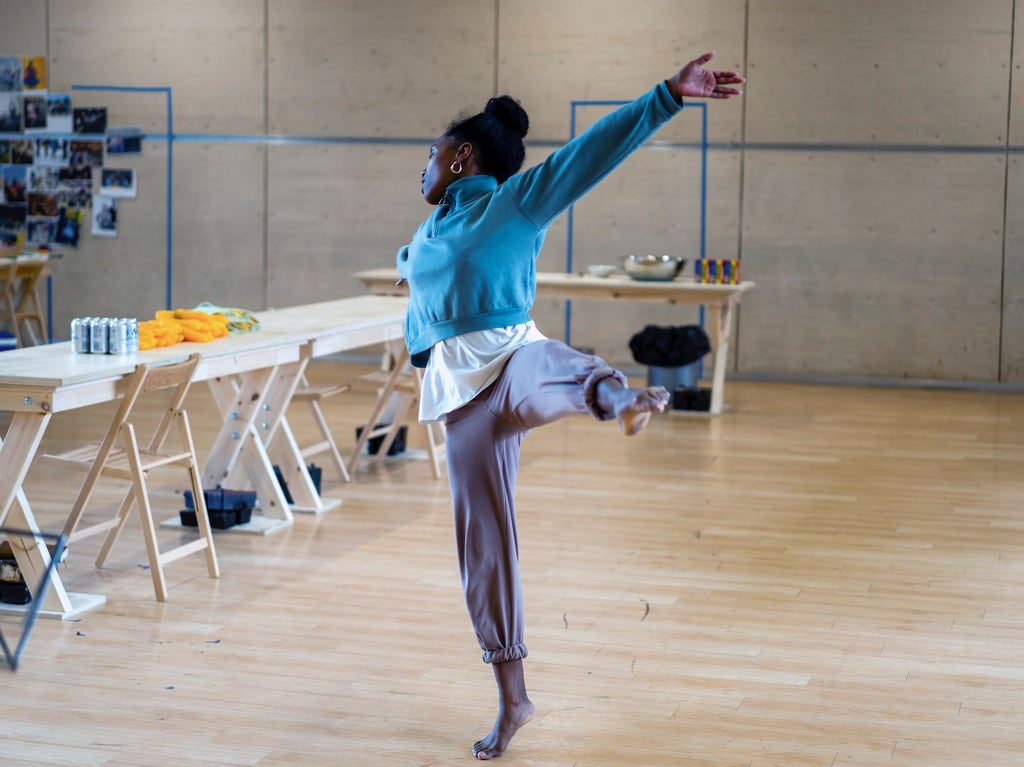
There’s a bright golden haze on the meadow…” Even if you don’t know Rodgers and Hammerstein musicals very well, when you think of Oklahoma! the first image that probably pops into your mind is of a smiling cowboy swaggering onto a stage and singing about what a beautiful morning it is. Or cheeky cowgirls in gingham frocks, dancing around cheerfully.
Daniel Fish’s bold production of this 1943 classic seeks to drive such images out of your mind. It arrives at the Young Vic, where it will star Arthur Darvill of Doctor Who fame as the cowboy Curly, sleek, stripped back and ready to change your view for ever. Even though it is still funny and lively, it’s also the darkest and most challenging incarnation of the show that you will ever see. Yet it barely changes a word of the script and keeps every one of the familiar songs, including “I Cain’t Say No” and “Surrey with the Fringe on Top”, presented in a new orchestration for a small bluegrass band.
Fish’s version of Oklahoma! began life as a student production at Bard College, in New York state back in 2007, before morphing into a professional production and finally making its way to Broadway in 2018. At each stage of the journey, its directness and intimacy – it’s set in a rough-hewn community centre, with guns pinned to the walls and a chilli being prepared on the long tables of the set – left audiences telling people it was the best thing they had ever seen.
I caught it in New York at the Circle in the Square, and was knocked out by its intensity, its bravery, and by the way it presented a musical that had always seemed to be a slightly cheesy celebration of the pioneer spirit as something both much more vital and questioning. Fish’s initial reaction, the quality that made him want to explore Oklahoma!, was exactly the same.
“I knew the music as a kid, and it had a place in me below the conscious level,” the director tells me. (Fish grew up in New Jersey in the Seventies and started going to the theatre regularly as a child.) “I thought I knew the piece, but I didn’t know it at all. Once I started working on it, I realised that there were themes there that were far more complicated and nuanced – ideas about justice, about violence and about the need of a community to create an outsider in order to define themselves.”
Oklahoma! pivots on the triangular relationship between farm girl Laurey and the two men who are courting her – glamorous cowboy Curly and the farm hand Jud. Jud is usually portrayed as a sinister, frightening thug. Fish, who is 54, with a long experience of looking afresh at established texts, saw him instead as a gentle, wary odd man out. It alters the whole balance of the show.
“Because Jud is revealed to be a three-dimensional human, every other character becomes suddenly more interesting,” says Patrick Vaill, who has played him since the very start. “It makes it a love triangle as opposed to someone who is pestering a woman. It feels like a psychosexual thriller in many ways; at the centre of it are these three people who are fated to be involved in a way that will explode their lives.”
The production has defined Vaill’s whole professional life. Yet in 15 years, off and on, he has never wanted to walk away. “I will cross water to do this show. I love it. I believe in it. I love what Daniel has found in it and that it keeps unfurling. It’s growing and it’s never done. It has been a lovely companion, sort of strange and unique and I am so grateful for what this piece gives me.”
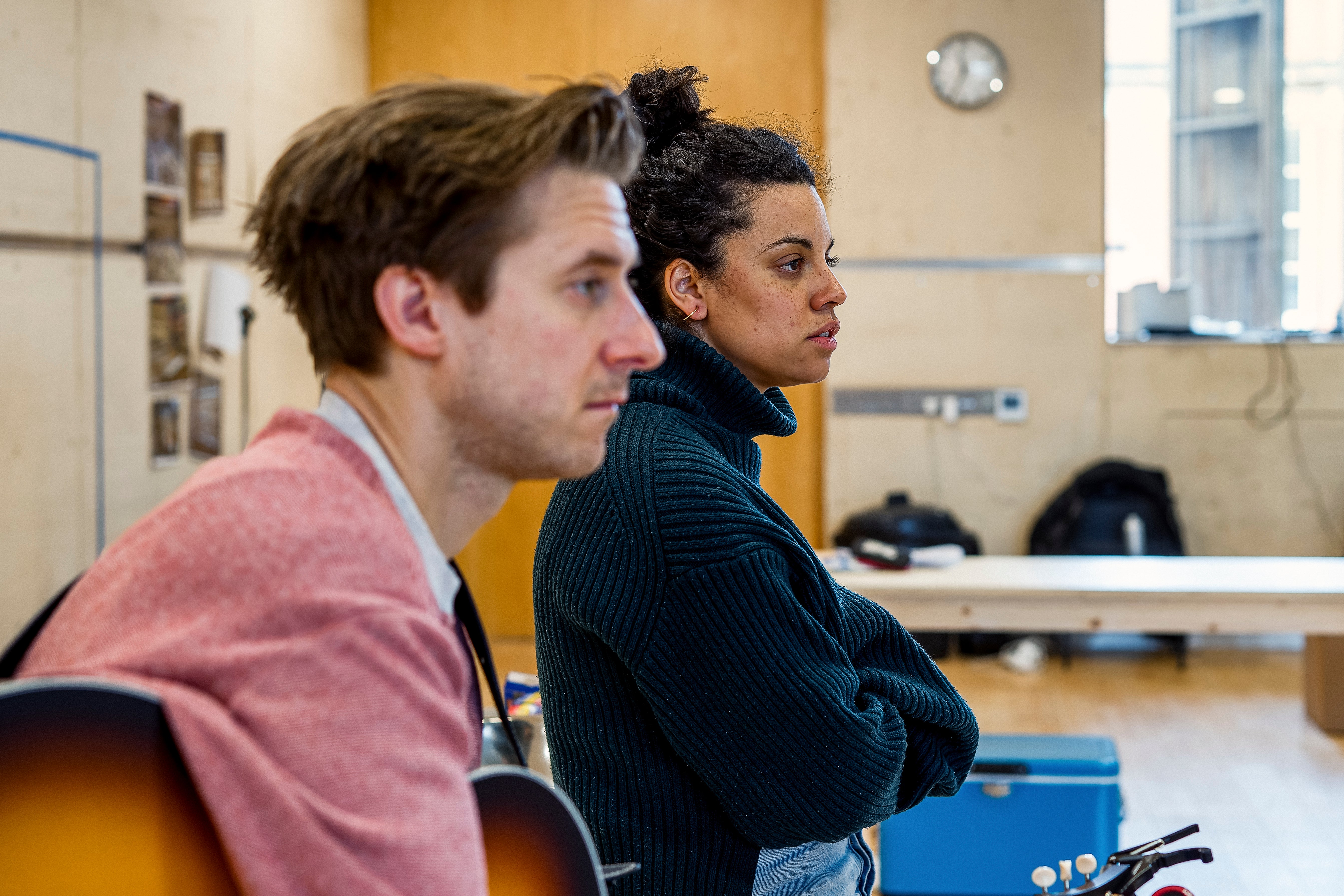
For Darvill, taking on Curly is like stepping into a different world. Although an experienced musician and composer – he actually wrote a musical called Been So Long, which was performed at the Young Vic – he hasn’t starred in a musical before, and he didn’t know Oklahoma!. “We sang a Rodgers and Hammerstein medley in the choir at school,” he says. “In very British accents. And I had some kind of preconceived notion of what the show was. But my first experience was reading it and I just found it so moving and so dark.”
The scene that most struck him was the one where Curly goes to visit Jud, his rival in love and suggests he considers killing himself. “I thought Curly was meant to be the good guy,” he says. “It just really hit me and knowing what this production does, I was so keen to be on board.” As he has got to know the show better, he has become even more impressed. “I’ve really fallen in love with these songs,” he says. “The complexity of the relationships is all in the script. Rodgers and Hammerstein were very good at writing about people, and these songs go deep down.”
Anoushka Lucas, the singer and composer, who plays Laurey, grew up listening to Oklahoma! as a child. “I was indoctrinated because my dad was a massive fan,” she says. But the honed, rigorous approach of this production has allowed her to find new shades in what sometimes feels like a very traditional character. “What’s been really fascinating is trying to strip away all the preconceptions of who Laurey is, trying to strip away the archetype of the good, virtuous, virginal woman, and not spinning the words or making something a joke, just trying to be this woman, and what she says. It’s really simple but really difficult at the same time.
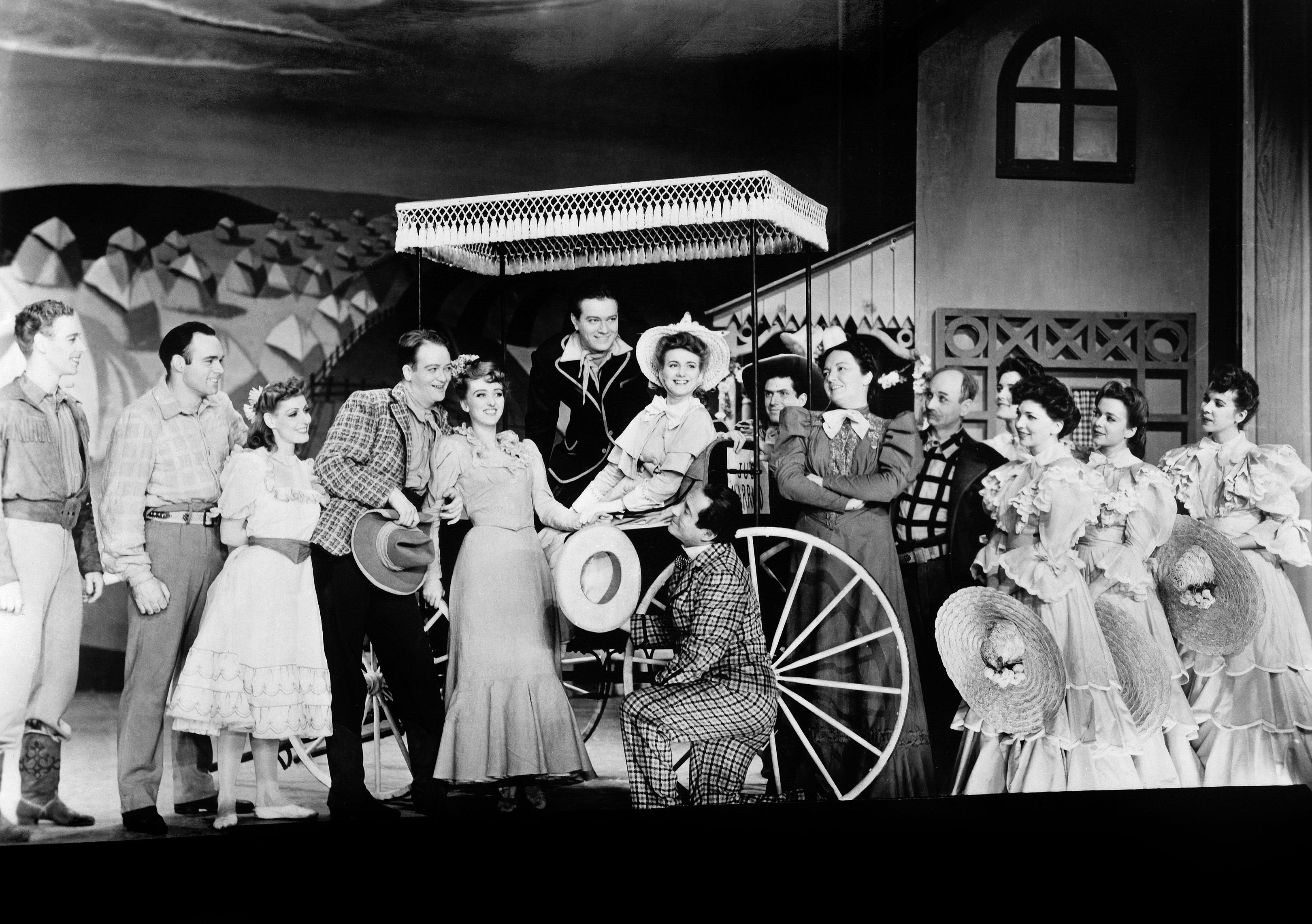
“She’s sort of paralysed. She knows she has to make choices in order to begin her life – and she really understands there will be consequences and conclusions to any choice she makes. She has a lot of drive, but it’s a trapped drive, I think.”
Vaill points out that the impact of the show has changed massively since they first started performances. “It’s been so interesting to watch it progress as the world has progressed or devolved. When we started [in 2007] Bush was president and America was at war in Iraq. That was very present. Then we did it in 2015, Obama was president, gay marriage was legalised and so Curly’s speech about ‘the country’s changing, got to change with it’ was optimistic and beautiful.
“By the time we did it again, Trump was president and [the conservative justice] Brett Kavanaugh was being nominated for the Supreme Court and so the trial scene at the end had a whole different vibe. Now it’s different again. That’s the power of the piece.”
Rodgers and Hammerstein wrote Oklahoma!, their first musical together, in 1943. It was extraordinarily influential because of the way it fully integrated song, plot and character. Its dream ballet, choreographed by Agnes de Mille, in which Laurey expresses her feelings about being torn between Curly and Jud was totally innovative. Its all-American certainties, its belief in the settler spirit, seemed to offer a reassurance in a time of war, and it is now a staple of American college productions. The song “Oklahoma!” has become the state song of Oklahoma itself.
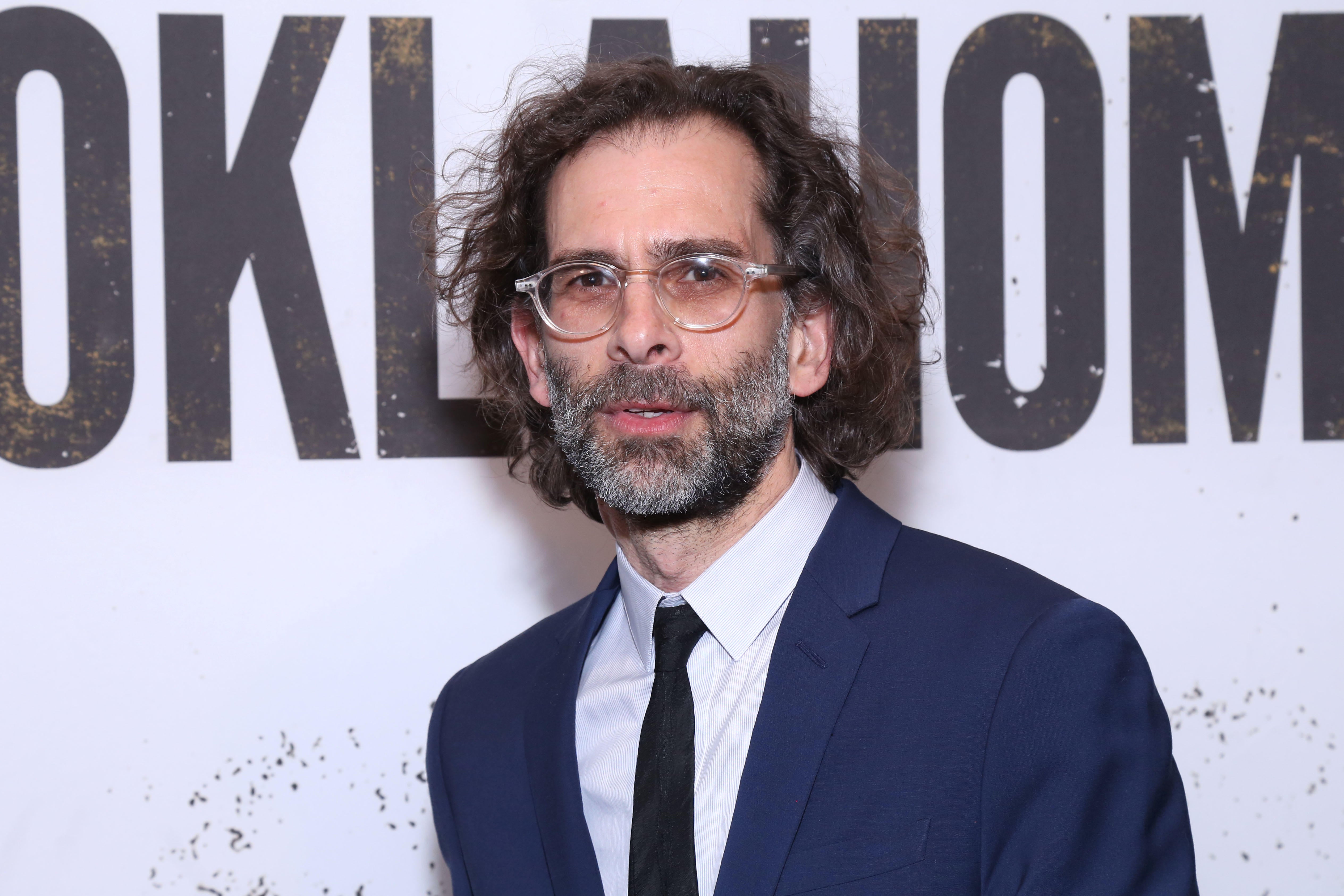
Yet its more complicated resonance was baked in from the start. It was based on a play, Green Grow the Lilacs, by Lynn Riggs, who was part-Cherokee and only too aware that the state of Oklahoma grew on land that was taken from Native Americans by people with guns.
It is now, of course, being performed at a moment when Europe is once again at war, which casts it – for its new British audience – in another light again. “I am very interested to see what the reaction is,” says Darvill. “Daniel has been very clear that it’s not just about America, it’s very much about where it is happening. We’re just trying to find the truth of it at the moment.”
Fish underlines the point. “We are not trying to make it about what’s going on in the world in a literal way,” he explains. “We’re trying to deal with those issues of violence, of injustice, of community and doing that in a way that feels as present as possible. Asking, if we do that, at this particular moment in this particular city, what happens? That’s kind of the proposal of the production. That’s why I go to the theatre. To see what’s going to happen.”
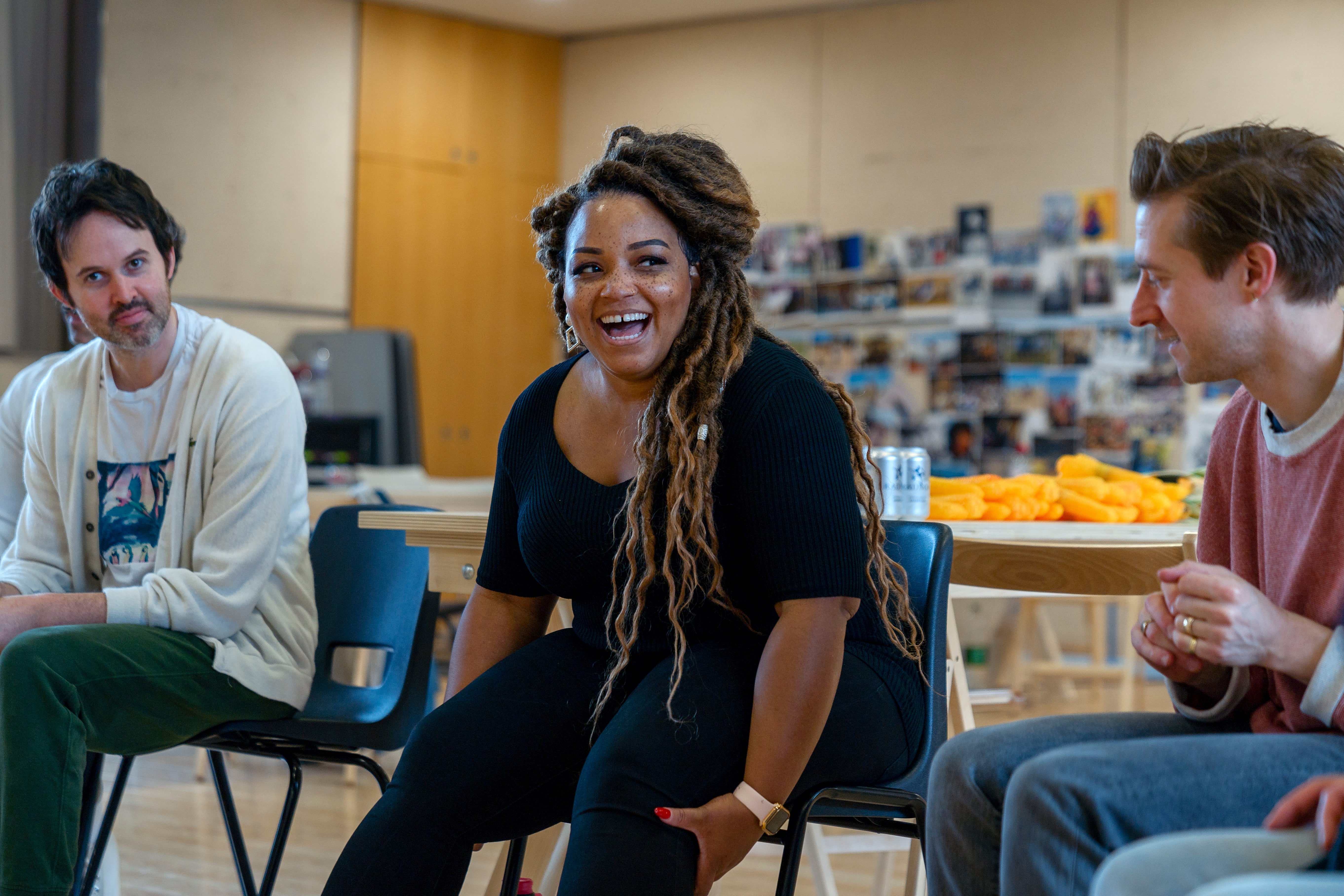
His clear-eyed vision of the show is part of a new generation of productions of classic musicals, full of much-loved songs, which seek to examine their assumptions. London will shortly see Bartlett Sher’s reimagining of My Fair Lady, with Amara Okereke as Eliza – and with a reconfigured ending which gives her more power and less romance. It follows Timothy Sheader’s production of Carousel at the Regent’s Park Open Air Theatre which fundamentally altered the message of the show.
For Darvill, seeing old musicals afresh is vital to keeping them alive. “Unless you’re going to make them into museum pieces.” Lucas agrees. “Reinterpretation is fascinating because it weighs up the quality of the material, and great material like Shakespeare, or a Bob Dylan song, or Oklahoma! could be done in 17,000 different ways. It’s just a testament to its quality, to the longevity of the songs. Their structure, harmonically, lyrically, melodically is extraordinary. I notice that people backstage are all humming the score, because it goes straight in. And that ability to write a song that goes straight in is rare.”
In the end, says Fish, that’s the reason to revive Oklahoma!. “Agnes de Mille was once asked why do you think the show has worked for so many years? And she said, ‘because it’s good.’ The work of Rodgers and Hammerstein, the music, the words, is just so good. And so well crafted. And so funny. The rigour with which the piece is put together allows you to keep coming back to it.”
‘Oklahoma!’ is at the Young Vic Theatre, London until 25 June







